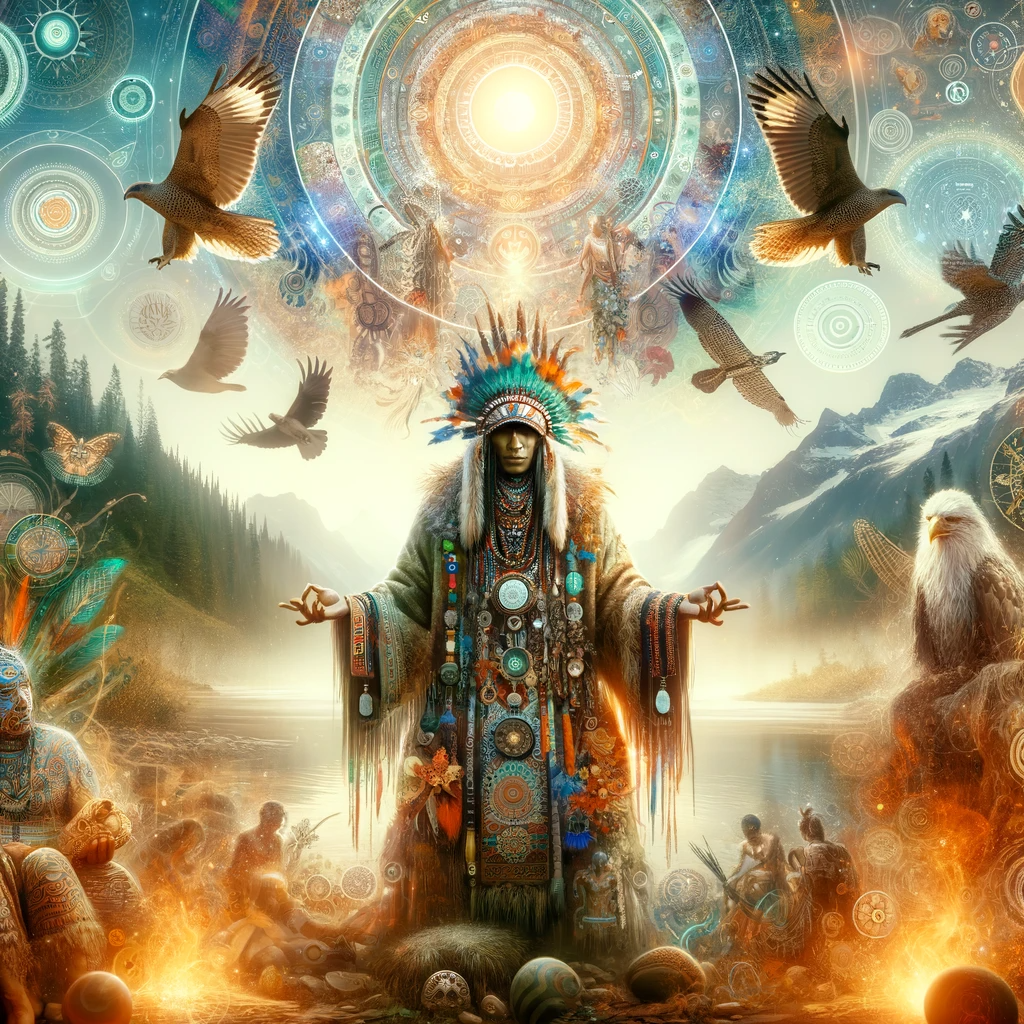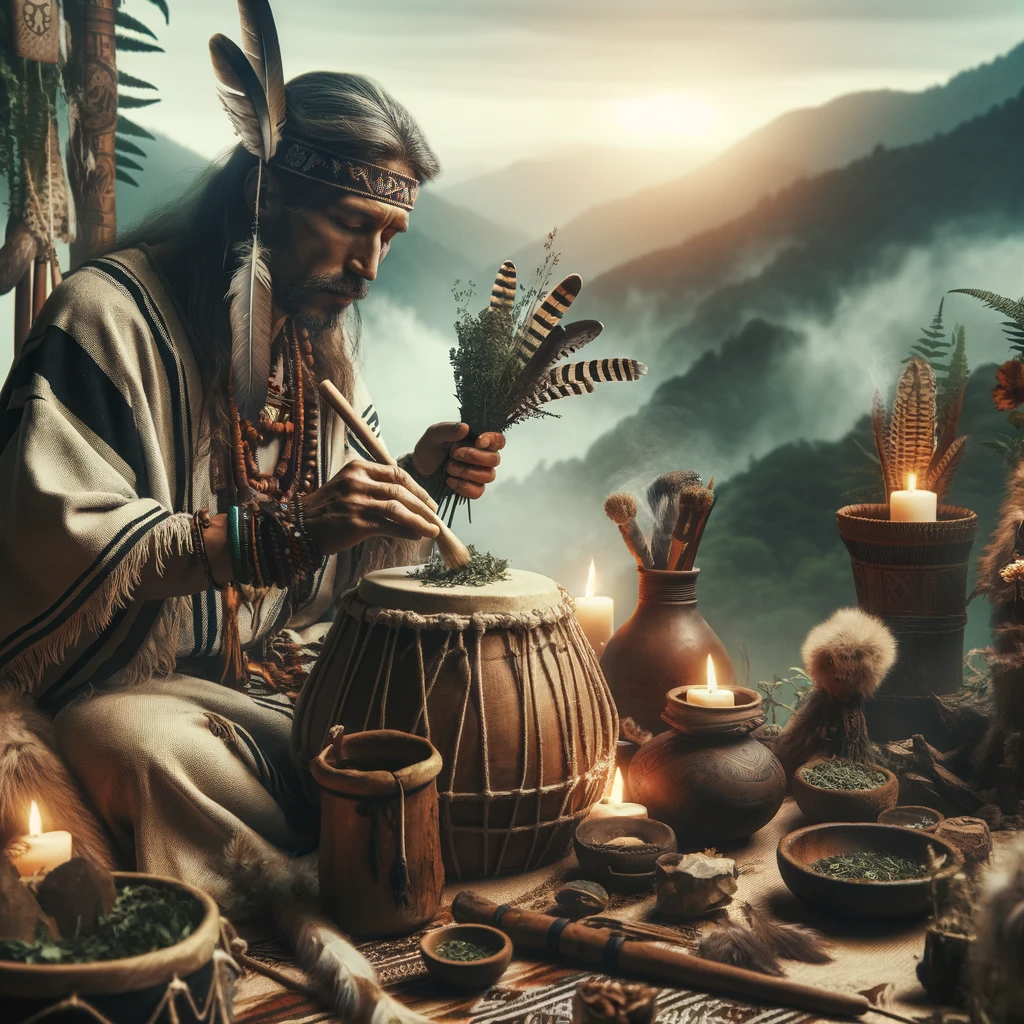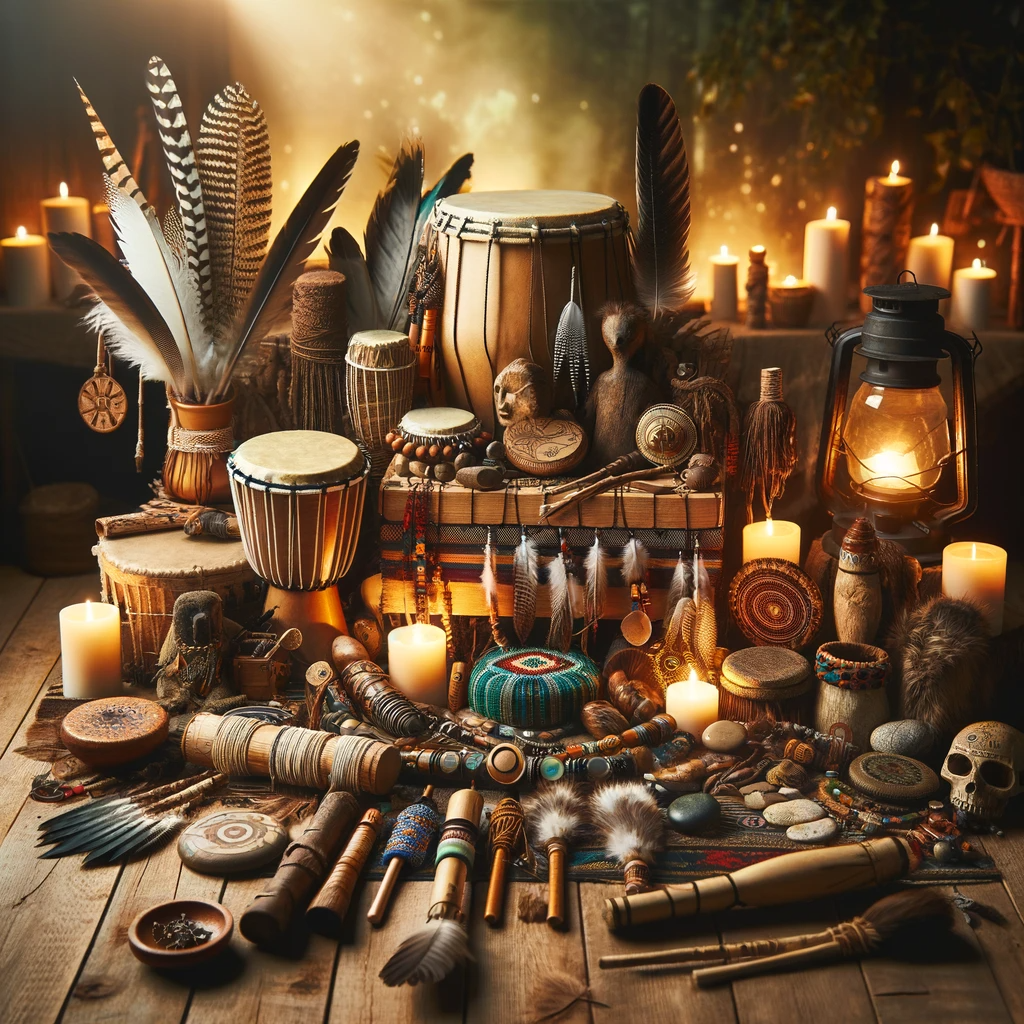The Role of a Shaman: Bridging the Physical and Spiritual Worlds

Shamans hold an esteemed and vital position in many indigenous cultures. They act as healers, priests, mystics, counselors, ceremonial leaders, and spiritual guides who connect their communities to the parallel worlds of spirits, energies and non-ordinary states of consciousness. By walking between worlds, they help maintain balance and order for the wellbeing of all.

Core Responsibilities of the Shaman
While specifics vary between traditions, core shamanic roles include:
- Healer – Use rituals, plant medicines, energy work to heal physical, emotional and spiritual illnesses by restoring wholeness and proper energy flow in clients. Extract harmful intrusions.
- Psychopomp – Help dead souls safely transition to afterlife realms. Guide spirits that are lost or attached to the living into the light. Exorcise malicious entities.
- Diviner – Reveal information on origins of diseases, lucky hunting grounds, future events. Divine messages from spirit guides using tools like drums, casts, and oracle stones.
- Counselor – Provide wisdom, perspective, and advice on life issues afflicting members of their community through messages channeled from spirits and ancestors.
- Ritual Leader – Lead important community rituals for renewal, rites of passage, marriages, funerals, fertility, prosperity, overcoming collective challenges.
- Protector – Use knowledge of upper and lower realms to strengthen community by banishing evil spirits, placing protective totems and wards, uncovering and undoing curses.
- Teacher – Pass down tribal legends, myths, history, and culture to younger generations so heritage survives. Tell stories that impart morals and taboos.
- Visionary – Enter mystical states of consciousness to gather wisdom and glimpse future events important for community survival and direction. Report back visions.
- Magician – Harness unseen energies and forces of nature to create blessings, curses, transformations through dances, chants, and spirit helper intercession.
Why Shamans Are Needed
In shamanic cultures, the importance of the shaman stems from core beliefs that:
- The material world interacts dynamically with invisible spiritual realms existing in parallel.
- What happens in non-ordinary states of consciousness profoundly impacts everyday life.
- Energies and spirits surround us and influence much more than is visible. Either harm or help depending on how they are accessed and directed.
- Humans have spiritual gifts, psychic senses, and life force energy that require cultivation to prevent fragmentation.
- Ritual interaction with the spirit world provides healing, guidance and vital protection for navigating life’s challenges.
- Communities must actively honor their relationship to all beings – spirits, animals, plants, land, elements – to live in harmony and balance.
The shaman mediates between worlds, speaking the language of energy and spirits to interpret guidance, find lost soul parts, banish malign influence, and restore wholeness on all levels.

Walking Between Worlds
To effectively bridge distinct realms, shamans develop skills through extensive training including:
- Spirit Work – Develop relationships with power animals, teachable plant & nature spirits, ancestors, spirit guides to access their strengths.
- Energy Mastery – Learn to sense, direct and restore proper energy flow within individuals through practices like soul retrieval.
- Trance States – Enter non-ordinary states of consciousness at will using drumming, plants, sleep deprivation – to access other realms.
- Divination – Employ a diverse toolkit of techniques to gather otherwise inaccessible information – scrying, throws, synchronicity reading, oracle decks.
- Dreamwork – Unlock guidance through dreams by learning the symbolic language of the subconscious and achieving lucidity.
- Ecstatic Dance & Music – Use repetitive, trance-inducing percussion, chanting, dance, to open portals and attain visionary states.
- Ceremony – Design intricate ceremonial rituals that balance energies and bridge worlds through the symbolic invocation of spirits.
- Medicine Creation – Prepare sacred plant medicines by communing with their spirits. Understand their healing properties through direct experience in journeying states.
Through mastery of these interrelated practices, shamans mediate between seemingly distinct planes of existence that profane perception fails to recognize as intertwined.
The Shaman’s Duty of Service
Though shamans access extraordinary states of awareness and power, their goal remains service to the community’s health and equilibrium. They carry responsibility to:
- Remain humble and egoless in conduct, dedicating spiritual gifts to community benefit rather than selfish aims.
- Uphold the welfare of the collective whole vs. individual interests which could disrupt balance.
- Allow spirits and ritual intent to work through them as vessels sans self-attachment.
- Treat shamanic knowledge and relationships with respect rather than exploiting bonds with spirits.
- Gradually transmit wisdom to an apprentice shaman who demonstrates selfless virtues so the culture survives intact.
- As counselors, guide others to find their own answers vs. fostering dependency. Empower inner growth.
- Regularly renew connection to all aspects of the web – spirits, elders, animals, land, children – through rituals and offerings.
By dedicating their extraordinary gifts to selfless acts of healing, the shaman ensures the vitality and cohesion of the entire community and environment.

FAQ About Shamans
Q: Do you have to be born a shaman or can you train to become one?
A: Shamans are usually chosen by mentors who recognize their gifts. But some undertake extensive training to develop shamanic skills and spirit relationships.
Q: How do shamans gather their knowledge and wisdom without books or institutions?
A: Shamanic teachings are experiential – gathered directly from spirits, unseen realms, and ancestral lineages through altered states and rituals.
Q: Are shamans always healers or do some connect to darker forces and energies?
A: Most use abilities for good to heal. But across cultures there can be variations where shamans connect with destructive or manipulative spirits and energies. Discernment is required.
Q: Is shamanism a closed practice or can outsiders respectfully learn techniques?
A: Anyone can respectfully learn shamanic techniques for personal growth. Closed rituals should be avoided. Cultural appropriation should be examined.
Q: Do I have to take psychedelics to become a shaman and access the spirit realm?
A: No. Drumming, fasting, meditation and dissociative dancing can induce shamanic states. But some cultures do use plant medicines.
Q: Are shamans always eccentric or unstable because they live between worlds?
A: No, successful shamans are disciplined, ethically grounded, mentally sound and able to fully return to normal consciousness after journeying.
Q: Can women be shamans? Is shamanism male-dominated?
A: Historically women have been equally respected as shamans. Restrictions are culturally specific, not inherent to shamanism which relies on spiritual gifts over gender.
Q: How do shamans contribute to environmental or ecological balance?
A: By honoring Earth spirits, maintaining rituals that foster human-nature interconnection, and healing humanity’s relationship to the living planet.